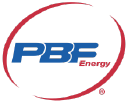INT

World Fuel Services Corporation
INT
(3.0)24,26 USD
1% ROA
6.74% ROE
25.32x PER
1.507.251.966,00 USD
45.27% DER
0% Yield
0.3% NPM
World Fuel Services Corporation Stock Analysis
World Fuel Services Corporation Fundamental Analysis
Fundamental analysis in stock investing is like studying the foundation of a house before buying it. It involves looking at a company's financial health, like its earnings, assets, and debts, to determine if it's a good investment based on its fundamental strength and potential for growth.
| # | Analysis | Rating |
|---|---|---|
| 1 |
PBV
With a remarkably low PBV ratio (0.75x), the stock offers substantial upside potential at a bargain price. |
|
| 2 |
DER
The stock has a minimal amount of debt (36%) relative to its ownership, showcasing a strong financial position and lower risk for investors. |
|
| 3 |
Dividend
The company's consistent dividend distribution over the past five years reflects its dedication to providing shareholders with steady returns, making it an appealing choice for investors seeking income stability. |
|
| 4 |
ROE
ROE in an average range (5.64%) suggests satisfactory profitability and decent utilization of shareholders' equity. |
|
| 5 |
ROA
The stock's ROA (1.87%) indicates that it's doing well in making money from the things it owns. This makes it a good option to invest and make consistent profits. |
|
| 6 |
Revenue Growth
With a track record of continuous revenue growth in the last three years, this company offers a promising investment opportunity |
|
| 7 |
Net Profit Growth
This company's net profit has been consistently on the rise over the past three years, indicating a strong financial performance and making it an appealing investment opportunity. |
|
| 8 |
Graham Number
The Graham number calculation reveals that this company's stock price is potentially underestimated, implying that it may be a promising investment option. |
|
| 9 |
Buffet Intrinsic Value
The company's stock seems undervalued (13.449) by Warren Buffett's formula, indicating a promising investment opportunity as its intrinsic value exceeds the market price. |
|
| 10 |
Assets Growth
Company's revenue has stayed stagnant, showing no signs of improvement and making it a less favorable choice. |
|
| 11 |
Dividend Growth
The company's dividend growth has been flat for the past three years, raising concerns for potential investors seeking reliable returns. |
World Fuel Services Corporation Technical Analysis
Technical analysis in stock investing is like reading the patterns on a weather map to predict future weather conditions. It involves studying past stock price movements and trading volumes to make predictions about where a stock's price might go next, without necessarily looking at the company's financial health.
| # | Analysis | Recommendation |
|---|---|---|
| 1 | Awesome Oscillator | Hold |
| 2 | MACD | Buy |
| 3 | RSI | Hold |
| 4 | Stoch RSI | Sell |
World Fuel Services Corporation Price Chart
Financial Statements
Financial statements are like report cards for companies. They show how much money a company makes (income statement), what it owns and owes (balance sheet), and where it spends its money (cash flow statement), helping stock investors understand if a company is healthy and worth investing in.
Income Statements
An income statement for a company is like a scoreboard for its profits and losses. It shows how much money the company made (revenue) and how much it spent to make that money (expenses), helping stock investors see if a company is making a profit or not.
Revenue in stock investing is the total amount of money a company earns from its sales, and it's a key factor that investors consider to assess a company's financial performance and growth potential.
| Year | Revenue | Growth |
|---|---|---|
| 1985 | 7.300.000 | |
| 1986 | 9.200.000 | 20.65% |
| 1987 | 41.100.000 | 77.62% |
| 1988 | 64.500.000 | 36.28% |
| 1989 | 142.200.000 | 54.64% |
| 1990 | 234.300.000 | 39.31% |
| 1991 | 205.500.000 | -14.01% |
| 1992 | 254.800.000 | 19.35% |
| 1993 | 250.500.000 | -1.72% |
| 1994 | 361.900.000 | 30.78% |
| 1995 | 642.300.000 | 43.66% |
| 1996 | 772.600.000 | 16.87% |
| 1997 | 801.700.000 | 3.63% |
| 1998 | 744.200.000 | -7.73% |
| 1999 | 1.200.297.000 | 38% |
| 2000 | 1.529.242.000 | 21.51% |
| 2001 | 1.365.065.000 | -12.03% |
| 2003 | 2.661.790.000 | 48.72% |
| 2004 | 5.654.373.000 | 52.93% |
| 2005 | 8.733.947.000 | 35.26% |
| 2006 | 10.785.136.000 | 19.02% |
| 2007 | 13.729.555.000 | 21.45% |
| 2008 | 18.509.403.000 | 25.82% |
| 2009 | 11.295.177.000 | -63.87% |
| 2010 | 19.131.147.000 | 40.96% |
| 2011 | 34.622.854.000 | 44.74% |
| 2012 | 38.945.338.000 | 11.1% |
| 2013 | 41.561.947.000 | 6.3% |
| 2014 | 43.386.389.000 | 4.21% |
| 2015 | 30.379.700.000 | -42.81% |
| 2016 | 27.015.800.000 | -12.45% |
| 2017 | 33.695.500.000 | 19.82% |
| 2018 | 39.750.300.000 | 15.23% |
| 2019 | 36.819.000.000 | -7.96% |
| 2020 | 20.358.300.000 | -80.85% |
| 2021 | 31.337.000.000 | 35.03% |
| 2022 | 59.043.100.000 | 46.93% |
| 2023 | 48.981.200.000 | -20.54% |
| 2023 | 47.710.600.000 | -2.66% |
| 2024 | 43.805.600.000 | -8.91% |
Research and Development Expenses are the costs a company incurs to create and improve its products or services, which can be important for investors to evaluate a company's innovation and potential for future growth.
| Year | Research and Development Expenses | Growth |
|---|---|---|
| 1985 | 0 | |
| 1986 | 0 | 0% |
| 1987 | 0 | 0% |
| 1988 | 0 | 0% |
| 1989 | 0 | 0% |
| 1990 | 0 | 0% |
| 1991 | 0 | 0% |
| 1992 | 0 | 0% |
| 1993 | 0 | 0% |
| 1994 | 0 | 0% |
| 1995 | 0 | 0% |
| 1996 | 0 | 0% |
| 1997 | 0 | 0% |
| 1998 | 0 | 0% |
| 1999 | 0 | 0% |
| 2000 | 0 | 0% |
| 2001 | 0 | 0% |
| 2003 | 0 | 0% |
| 2004 | 0 | 0% |
| 2005 | 0 | 0% |
| 2006 | 0 | 0% |
| 2007 | 0 | 0% |
| 2008 | 0 | 0% |
| 2009 | 0 | 0% |
| 2010 | 0 | 0% |
| 2011 | 0 | 0% |
| 2012 | 0 | 0% |
| 2013 | 0 | 0% |
| 2014 | 0 | 0% |
| 2015 | 0 | 0% |
| 2016 | 0 | 0% |
| 2017 | 0 | 0% |
| 2018 | 0 | 0% |
| 2019 | 0 | 0% |
| 2020 | 0 | 0% |
| 2021 | 0 | 0% |
| 2022 | 0 | 0% |
| 2023 | 0 | 0% |
| 2023 | 0 | 0% |
| 2024 | 0 | 0% |
General and Administrative Expenses are the costs a company incurs to run its day-to-day operations, such as office rent, salaries, and utilities, which investors consider to understand a company's overall efficiency and management effectiveness.
| Year | General and Administrative Expenses | Growth |
|---|---|---|
| 1985 | 0 | |
| 1986 | 0 | 0% |
| 1987 | 0 | 0% |
| 1988 | 0 | 0% |
| 1989 | 0 | 0% |
| 1990 | 0 | 0% |
| 1991 | 0 | 0% |
| 1992 | 0 | 0% |
| 1993 | 0 | 0% |
| 1994 | 0 | 0% |
| 1995 | 0 | 0% |
| 1996 | 0 | 0% |
| 1997 | 0 | 0% |
| 1998 | 0 | 0% |
| 1999 | 0 | 0% |
| 2000 | 0 | 0% |
| 2001 | 0 | 0% |
| 2003 | 38.757.000 | 100% |
| 2004 | 0 | 0% |
| 2005 | 39.370.000 | 100% |
| 2006 | 49.022.000 | 19.69% |
| 2007 | 62.683.000 | 21.79% |
| 2008 | 85.282.000 | 26.5% |
| 2009 | 217.044.000 | 60.71% |
| 2010 | 257.013.000 | 15.55% |
| 2011 | 369.858.000 | 30.51% |
| 2012 | 411.634.000 | 10.15% |
| 2013 | 476.655.000 | 13.64% |
| 2014 | 540.717.000 | 11.85% |
| 2015 | 605.800.000 | 10.74% |
| 2016 | 694.700.000 | 12.8% |
| 2017 | 735.100.000 | 5.5% |
| 2018 | 741.700.000 | 0.89% |
| 2019 | 792.600.000 | 6.42% |
| 2020 | 678.000.000 | -16.9% |
| 2021 | 634.300.000 | -6.89% |
| 2022 | 816.100.000 | 22.28% |
| 2023 | 304.400.000 | -168.1% |
| 2023 | 308.000.000 | 1.17% |
| 2024 | 300.400.000 | -2.53% |
EBITDA stands for Earnings Before Interest, Taxes, Depreciation, and Amortization. It is a measure that helps stock investors analyze a company's profitability by looking at its earnings without considering certain expenses. This helps to get a clearer picture of the company's financial performance and its ability to generate cash flow.
| Year | EBITDA | Growth |
|---|---|---|
| 1985 | 700.000 | |
| 1986 | 400.000 | -75% |
| 1987 | 2.300.000 | 82.61% |
| 1988 | 4.100.000 | 43.9% |
| 1989 | 6.100.000 | 32.79% |
| 1990 | 9.000.000 | 32.22% |
| 1991 | 9.800.000 | 8.16% |
| 1992 | 9.400.000 | -4.26% |
| 1993 | 11.100.000 | 15.32% |
| 1994 | 10.900.000 | -1.83% |
| 1995 | 14.700.000 | 25.85% |
| 1996 | 15.300.000 | 3.92% |
| 1997 | 18.600.000 | 17.74% |
| 1998 | 18.700.000 | 0.53% |
| 1999 | 20.632.000 | 9.36% |
| 2000 | 28.793.000 | 28.34% |
| 2001 | 20.985.000 | -37.21% |
| 2003 | 31.758.000 | 33.92% |
| 2004 | 41.369.000 | 23.23% |
| 2005 | 60.593.000 | 31.73% |
| 2006 | 80.112.000 | 24.36% |
| 2007 | 95.202.000 | 15.85% |
| 2008 | 167.610.000 | 43.2% |
| 2009 | 172.167.000 | 2.65% |
| 2010 | 200.686.000 | 14.21% |
| 2011 | 298.290.000 | 32.72% |
| 2012 | 293.737.000 | -1.55% |
| 2013 | 309.068.000 | 4.96% |
| 2014 | 328.547.000 | 5.93% |
| 2015 | 310.600.000 | -5.78% |
| 2016 | 263.600.000 | -17.83% |
| 2017 | 276.700.000 | 4.73% |
| 2018 | 354.500.000 | 21.95% |
| 2019 | 418.300.000 | 15.25% |
| 2020 | 328.300.000 | -27.41% |
| 2021 | 232.500.000 | -41.2% |
| 2022 | 363.300.000 | 36% |
| 2023 | 293.200.000 | -23.91% |
| 2023 | 198.000.000 | -48.08% |
| 2024 | 253.200.000 | 21.8% |
Gross profit is the money a company makes from selling its products or services after subtracting the cost of producing or providing them, and it is an important measure for investors to understand a company's profitability.
| Year | Gross Profit | Growth |
|---|---|---|
| 1985 | 800.000 | |
| 1986 | 600.000 | -33.33% |
| 1987 | 6.000.000 | 90% |
| 1988 | 10.200.000 | 41.18% |
| 1989 | 17.000.000 | 40% |
| 1990 | 25.700.000 | 33.85% |
| 1991 | 24.800.000 | -3.63% |
| 1992 | 25.500.000 | 2.75% |
| 1993 | 28.400.000 | 10.21% |
| 1994 | 29.200.000 | 2.74% |
| 1995 | 42.000.000 | 30.48% |
| 1996 | 48.500.000 | 13.4% |
| 1997 | 52.700.000 | 7.97% |
| 1998 | 62.200.000 | 15.27% |
| 1999 | 66.675.000 | 6.71% |
| 2000 | 74.092.000 | 10.01% |
| 2001 | 76.174.000 | 2.73% |
| 2003 | 100.708.000 | 24.36% |
| 2004 | 129.956.000 | 22.51% |
| 2005 | 178.664.000 | 27.26% |
| 2006 | 214.069.000 | 16.54% |
| 2007 | 245.272.000 | 12.72% |
| 2008 | 395.383.000 | 37.97% |
| 2009 | 375.591.000 | -5.27% |
| 2010 | 442.141.000 | 15.05% |
| 2011 | 635.003.000 | 30.37% |
| 2012 | 673.447.000 | 5.71% |
| 2013 | 752.758.000 | 10.54% |
| 2014 | 813.622.000 | 7.48% |
| 2015 | 860.500.000 | 5.45% |
| 2016 | 899.000.000 | 4.28% |
| 2017 | 932.200.000 | 3.56% |
| 2018 | 1.018.500.000 | 8.47% |
| 2019 | 1.112.000.000 | 8.41% |
| 2020 | 851.800.000 | -30.55% |
| 2021 | 788.200.000 | -8.07% |
| 2022 | 1.089.000.000 | 27.62% |
| 2023 | 1.125.600.000 | 3.25% |
| 2023 | 1.058.200.000 | -6.37% |
| 2024 | 1.016.400.000 | -4.11% |
Net income in stock investing is like the money a company actually gets to keep as profit after paying all its bills, and it's an important measure to understand how well a company is doing financially.
| Year | Net Profit | Growth |
|---|---|---|
| 1985 | 200.000 | |
| 1986 | 200.000 | 0% |
| 1987 | 1.000.000 | 80% |
| 1988 | 2.200.000 | 54.55% |
| 1989 | 4.000.000 | 45% |
| 1990 | 4.800.000 | 16.67% |
| 1991 | 5.900.000 | 18.64% |
| 1992 | 1.600.000 | -268.75% |
| 1993 | 5.200.000 | 69.23% |
| 1994 | 8.100.000 | 35.8% |
| 1995 | 10.900.000 | 25.69% |
| 1996 | 13.300.000 | 18.05% |
| 1997 | 15.900.000 | 16.35% |
| 1998 | 15.100.000 | -5.3% |
| 1999 | 9.635.000 | -56.72% |
| 2000 | 10.634.000 | 9.39% |
| 2001 | 17.235.000 | 38.3% |
| 2003 | 21.874.000 | 21.21% |
| 2004 | 28.559.000 | 23.41% |
| 2005 | 39.609.000 | 27.9% |
| 2006 | 63.948.000 | 38.06% |
| 2007 | 64.773.000 | 1.27% |
| 2008 | 105.039.000 | 38.33% |
| 2009 | 117.139.000 | 10.33% |
| 2010 | 146.865.000 | 20.24% |
| 2011 | 194.029.000 | 24.31% |
| 2012 | 189.345.000 | -2.47% |
| 2013 | 203.075.000 | 6.76% |
| 2014 | 221.747.000 | 8.42% |
| 2015 | 186.900.000 | -18.64% |
| 2016 | 126.500.000 | -47.75% |
| 2017 | -170.200.000 | 174.32% |
| 2018 | 127.700.000 | 233.28% |
| 2019 | 178.900.000 | 28.62% |
| 2020 | 109.600.000 | -63.23% |
| 2021 | 73.700.000 | -48.71% |
| 2022 | 114.100.000 | 35.41% |
| 2023 | 139.600.000 | 18.27% |
| 2023 | 52.900.000 | -163.89% |
| 2024 | 109.600.000 | 51.73% |
EPS, or earnings per share, is a measure that shows how much profit a company has earned for each outstanding share of its stock, and it is important for stock investors as it helps understand the profitability of a company and compare it with other companies in the market.
| Year | Earning per Share (EPS) | Growth |
|---|---|---|
| 1985 | 0 | |
| 1986 | 0 | 0% |
| 1987 | 0 | 0% |
| 1988 | 0 | 0% |
| 1989 | 0 | 0% |
| 1990 | 0 | 0% |
| 1991 | 0 | 0% |
| 1992 | 0 | 0% |
| 1993 | 0 | 0% |
| 1994 | 0 | 0% |
| 1995 | 0 | 0% |
| 1996 | 0 | 0% |
| 1997 | 0 | 0% |
| 1998 | 0 | 0% |
| 1999 | 0 | 0% |
| 2000 | 0 | 0% |
| 2001 | 0 | 0% |
| 2003 | 1 | 0% |
| 2004 | 1 | 0% |
| 2005 | 1 | 0% |
| 2006 | 1 | 100% |
| 2007 | 1 | 0% |
| 2008 | 2 | 0% |
| 2009 | 2 | 0% |
| 2010 | 2 | 50% |
| 2011 | 3 | 0% |
| 2012 | 3 | 0% |
| 2013 | 3 | 0% |
| 2014 | 3 | 33.33% |
| 2015 | 3 | -50% |
| 2016 | 2 | -100% |
| 2017 | -3 | 150% |
| 2018 | 2 | 300% |
| 2019 | 3 | 50% |
| 2020 | 2 | -100% |
| 2021 | 1 | 0% |
| 2022 | 2 | 0% |
| 2023 | 2 | 50% |
| 2023 | 1 | 0% |
| 2024 | 2 | 100% |
Cashflow Statements
Cashflow statements show the movement of money in and out of a company, helping stock investors understand how much money a company makes and spends. By examining cashflow statements, investors can assess if a company is generating enough cash to pay its bills, invest in growth, and provide returns to stockholders.
Free cash flow is the leftover cash that a company generates after covering its operating expenses and capital expenditures, which is important for stock investors as it shows how much money a company has available to invest in growth, pay dividends, or reduce debt.
| Year | Free Cashflow | Growth |
|---|---|---|
| 1985 | 0 | |
| 1986 | 0 | 0% |
| 1987 | 0 | 0% |
| 1988 | 0 | 0% |
| 1989 | 0 | 0% |
| 1990 | 7.200.000 | 100% |
| 1991 | 2.700.000 | -166.67% |
| 1992 | -4.000.000 | 167.5% |
| 1993 | 8.000.000 | 150% |
| 1994 | 7.100.000 | -12.68% |
| 1995 | 2.300.000 | -208.7% |
| 1996 | 500.000 | -360% |
| 1997 | 9.400.000 | 94.68% |
| 1998 | 800.000 | -1075% |
| 1999 | 9.142.000 | 91.25% |
| 2000 | 15.640.000 | 41.55% |
| 2001 | 34.525.000 | 54.7% |
| 2003 | 23.463.000 | -47.15% |
| 2004 | -31.183.000 | 175.24% |
| 2005 | -8.641.000 | -260.87% |
| 2006 | 47.853.000 | 118.06% |
| 2007 | -94.508.000 | 150.63% |
| 2008 | 386.661.000 | 124.44% |
| 2009 | 71.428.000 | -441.33% |
| 2010 | -48.183.000 | 248.24% |
| 2011 | -162.028.000 | 70.26% |
| 2012 | 117.337.000 | 238.09% |
| 2013 | 181.586.000 | 35.38% |
| 2014 | 91.007.000 | -99.53% |
| 2015 | 396.500.000 | 77.05% |
| 2016 | 169.100.000 | -134.48% |
| 2017 | 151.200.000 | -11.84% |
| 2018 | -252.100.000 | 159.98% |
| 2019 | 147.900.000 | 270.45% |
| 2020 | 552.800.000 | 73.25% |
| 2021 | 134.000.000 | -312.54% |
| 2022 | 59.900.000 | -123.71% |
| 2023 | 183.700.000 | 67.39% |
| 2023 | 0 | 0% |
| 2024 | 92.700.000 | 100% |
Operating cash flow represents the cash generated or consumed by a company's day-to-day operations, excluding external investing or financing activities, and is crucial for stock investors as it shows how much cash a company is generating from its core business operations.
| Year | Operating Cashflow | Growth |
|---|---|---|
| 1985 | 0 | |
| 1986 | 0 | 0% |
| 1987 | 0 | 0% |
| 1988 | 1.000.000 | 100% |
| 1989 | 0 | 0% |
| 1990 | 10.100.000 | 100% |
| 1991 | 7.400.000 | -36.49% |
| 1992 | -100.000 | 7500% |
| 1993 | 11.100.000 | 100.9% |
| 1994 | 9.300.000 | -19.35% |
| 1995 | 3.700.000 | -151.35% |
| 1996 | 3.700.000 | 0% |
| 1997 | 12.900.000 | 71.32% |
| 1998 | 6.500.000 | -98.46% |
| 1999 | 11.002.000 | 40.92% |
| 2000 | 18.324.000 | 39.96% |
| 2001 | 35.961.000 | 49.04% |
| 2003 | 26.730.000 | -34.53% |
| 2004 | -28.785.000 | 192.86% |
| 2005 | -4.026.000 | -614.98% |
| 2006 | 67.884.000 | 105.93% |
| 2007 | -77.927.000 | 187.11% |
| 2008 | 393.452.000 | 119.81% |
| 2009 | 77.921.000 | -404.94% |
| 2010 | -35.698.000 | 318.28% |
| 2011 | -142.536.000 | 74.96% |
| 2012 | 145.791.000 | 197.77% |
| 2013 | 264.302.000 | 44.84% |
| 2014 | 141.160.000 | -87.24% |
| 2015 | 447.500.000 | 68.46% |
| 2016 | 205.200.000 | -118.08% |
| 2017 | 205.200.000 | 0% |
| 2018 | -181.400.000 | 213.12% |
| 2019 | 228.800.000 | 179.28% |
| 2020 | 604.100.000 | 62.13% |
| 2021 | 173.200.000 | -248.79% |
| 2022 | 138.500.000 | -25.05% |
| 2023 | 271.300.000 | 48.95% |
| 2023 | 0 | 0% |
| 2024 | 110.200.000 | 100% |
Capex, short for capital expenditures, refers to the money a company spends on acquiring or upgrading tangible assets like buildings, equipment, or technology, which is important for stock investors as it indicates how much a company is investing in its infrastructure to support future growth and profitability.
| Year | Capital Expenditure | Growth |
|---|---|---|
| 1985 | 0 | |
| 1986 | 0 | 0% |
| 1987 | 0 | 0% |
| 1988 | 1.000.000 | 100% |
| 1989 | 0 | 0% |
| 1990 | 2.900.000 | 100% |
| 1991 | 4.700.000 | 38.3% |
| 1992 | 3.900.000 | -20.51% |
| 1993 | 3.100.000 | -25.81% |
| 1994 | 2.200.000 | -40.91% |
| 1995 | 1.400.000 | -57.14% |
| 1996 | 3.200.000 | 56.25% |
| 1997 | 3.500.000 | 8.57% |
| 1998 | 5.700.000 | 38.6% |
| 1999 | 1.860.000 | -206.45% |
| 2000 | 2.684.000 | 30.7% |
| 2001 | 1.436.000 | -86.91% |
| 2003 | 3.267.000 | 56.05% |
| 2004 | 2.398.000 | -36.24% |
| 2005 | 4.615.000 | 48.04% |
| 2006 | 20.031.000 | 76.96% |
| 2007 | 16.581.000 | -20.81% |
| 2008 | 6.791.000 | -144.16% |
| 2009 | 6.493.000 | -4.59% |
| 2010 | 12.485.000 | 47.99% |
| 2011 | 19.492.000 | 35.95% |
| 2012 | 28.454.000 | 31.5% |
| 2013 | 82.716.000 | 65.6% |
| 2014 | 50.153.000 | -64.93% |
| 2015 | 51.000.000 | 1.66% |
| 2016 | 36.100.000 | -41.27% |
| 2017 | 54.000.000 | 33.15% |
| 2018 | 70.700.000 | 23.62% |
| 2019 | 80.900.000 | 12.61% |
| 2020 | 51.300.000 | -57.7% |
| 2021 | 39.200.000 | -30.87% |
| 2022 | 78.600.000 | 50.13% |
| 2023 | 87.600.000 | 10.27% |
| 2023 | 0 | 0% |
| 2024 | 17.500.000 | 100% |
Balance Sheet
Balance sheets provide a snapshot of a company's financial health and its assets (such as cash, inventory, and property) and liabilities (like debts and obligations) at a specific point in time. For stock investors, balance sheets help assess the company's overall worth and evaluate its ability to meet financial obligations and support future growth.
Equity refers to the ownership interest or stake that shareholders have in a company, representing their claim on its assets and earnings after all debts and liabilities are paid.
| Year | Equity | Growth |
|---|---|---|
| 1985 | 1.300.000 | |
| 1986 | 3.800.000 | 65.79% |
| 1987 | 4.900.000 | 22.45% |
| 1988 | 8.100.000 | 39.51% |
| 1989 | 20.800.000 | 61.06% |
| 1990 | 26.100.000 | 20.31% |
| 1991 | 32.700.000 | 20.18% |
| 1992 | 34.400.000 | 4.94% |
| 1993 | 40.000.000 | 14% |
| 1994 | 52.100.000 | 23.22% |
| 1995 | 63.800.000 | 18.34% |
| 1996 | 75.200.000 | 15.16% |
| 1997 | 91.900.000 | 18.17% |
| 1998 | 100.800.000 | 8.83% |
| 1999 | 99.661.000 | -1.14% |
| 2000 | 103.860.000 | 4.04% |
| 2001 | 116.439.000 | 10.8% |
| 2003 | 148.379.000 | 21.53% |
| 2004 | 188.503.000 | 21.29% |
| 2005 | 353.347.000 | 46.65% |
| 2006 | 425.969.000 | 17.05% |
| 2007 | 483.877.000 | 11.97% |
| 2008 | 607.887.000 | 20.4% |
| 2009 | 733.249.000 | 17.1% |
| 2010 | 1.126.564.000 | 34.91% |
| 2011 | 1.346.718.000 | 16.35% |
| 2012 | 1.541.624.000 | 12.64% |
| 2013 | 1.678.894.000 | 8.18% |
| 2014 | 1.864.881.000 | 9.97% |
| 2015 | 1.921.400.000 | 2.94% |
| 2016 | 1.940.000.000 | 0.96% |
| 2017 | 1.737.900.000 | -11.63% |
| 2018 | 1.831.500.000 | 5.11% |
| 2019 | 1.893.900.000 | 3.29% |
| 2020 | 1.912.900.000 | 0.99% |
| 2021 | 1.916.800.000 | 0.2% |
| 2022 | 1.990.800.000 | 3.72% |
| 2023 | 1.975.000.000 | -0.8% |
| 2023 | 1.949.700.000 | -1.3% |
| 2024 | 1.958.500.000 | 0.45% |
Assets represent the valuable resources that a company owns, such as cash, inventory, property, and equipment, and understanding a company's assets helps investors assess its value and potential for generating future profits.
| Year | Assets | Growth |
|---|---|---|
| 1985 | 3.800.000 | |
| 1986 | 6.800.000 | 44.12% |
| 1987 | 9.900.000 | 31.31% |
| 1988 | 16.300.000 | 39.26% |
| 1989 | 40.100.000 | 59.35% |
| 1990 | 49.900.000 | 19.64% |
| 1991 | 55.400.000 | 9.93% |
| 1992 | 54.700.000 | -1.28% |
| 1993 | 53.700.000 | -1.86% |
| 1994 | 89.500.000 | 40% |
| 1995 | 112.000.000 | 20.09% |
| 1996 | 123.100.000 | 9.02% |
| 1997 | 143.300.000 | 14.1% |
| 1998 | 165.900.000 | 13.62% |
| 1999 | 226.776.000 | 26.84% |
| 2000 | 222.165.000 | -2.08% |
| 2001 | 257.923.000 | 13.86% |
| 2003 | 357.678.000 | 27.89% |
| 2004 | 712.171.000 | 49.78% |
| 2005 | 1.014.001.000 | 29.77% |
| 2006 | 1.277.400.000 | 20.62% |
| 2007 | 1.798.046.000 | 28.96% |
| 2008 | 1.404.626.000 | -28.01% |
| 2009 | 1.741.228.000 | 19.33% |
| 2010 | 2.566.450.000 | 32.15% |
| 2011 | 3.697.246.000 | 30.58% |
| 2012 | 4.107.751.000 | 9.99% |
| 2013 | 4.739.277.000 | 13.33% |
| 2014 | 4.879.980.000 | 2.88% |
| 2015 | 4.549.400.000 | -7.27% |
| 2016 | 5.412.600.000 | 15.95% |
| 2017 | 5.587.800.000 | 3.14% |
| 2018 | 5.687.500.000 | 1.75% |
| 2019 | 5.992.400.000 | 5.09% |
| 2020 | 4.500.300.000 | -33.16% |
| 2021 | 5.942.400.000 | 24.27% |
| 2022 | 8.164.600.000 | 27.22% |
| 2023 | 7.483.100.000 | -9.11% |
| 2023 | 7.375.300.000 | -1.46% |
| 2024 | 7.174.400.000 | -2.8% |
Liabilities refer to the financial obligations or debts that a company owes to creditors or external parties, and understanding a company's liabilities is important for investors as it helps assess the company's financial risk and ability to meet its obligations.
| Year | Liabilities | Growth |
|---|---|---|
| 1985 | 2.500.000 | |
| 1986 | 3.000.000 | 16.67% |
| 1987 | 5.000.000 | 40% |
| 1988 | 8.200.000 | 39.02% |
| 1989 | 19.300.000 | 57.51% |
| 1990 | 23.800.000 | 18.91% |
| 1991 | 22.700.000 | -4.85% |
| 1992 | 20.300.000 | -11.82% |
| 1993 | 13.700.000 | -48.18% |
| 1994 | 37.400.000 | 63.37% |
| 1995 | 48.200.000 | 22.41% |
| 1996 | 47.900.000 | -0.63% |
| 1997 | 51.400.000 | 6.81% |
| 1998 | 65.100.000 | 21.04% |
| 1999 | 127.115.000 | 48.79% |
| 2000 | 118.305.000 | -7.45% |
| 2001 | 141.484.000 | 16.38% |
| 2003 | 209.299.000 | 32.4% |
| 2004 | 523.668.000 | 60.03% |
| 2005 | 660.654.000 | 20.73% |
| 2006 | 851.431.000 | 22.41% |
| 2007 | 1.314.169.000 | 35.21% |
| 2008 | 796.739.000 | -64.94% |
| 2009 | 1.007.979.000 | 20.96% |
| 2010 | 1.439.886.000 | 30% |
| 2011 | 2.350.528.000 | 38.74% |
| 2012 | 2.566.127.000 | 8.4% |
| 2013 | 3.060.383.000 | 16.15% |
| 2014 | 3.015.099.000 | -1.5% |
| 2015 | 2.628.000.000 | -14.73% |
| 2016 | 3.472.600.000 | 24.32% |
| 2017 | 3.849.900.000 | 9.8% |
| 2018 | 3.856.000.000 | 0.16% |
| 2019 | 4.098.500.000 | 5.92% |
| 2020 | 2.587.400.000 | -58.4% |
| 2021 | 4.025.600.000 | 35.73% |
| 2022 | 6.173.800.000 | 34.8% |
| 2023 | 5.508.000.000 | -12.09% |
| 2023 | 5.425.700.000 | -1.52% |
| 2024 | 5.215.900.000 | -4.02% |
World Fuel Services Corporation Financial Ratio (TTM)
Valuation Metrics
- Revenue per Share
- 770.96
- Net Income per Share
- 0.96
- Price to Earning Ratio
- 25.32x
- Price To Sales Ratio
- 0.03x
- POCF Ratio
- 9.19
- PFCF Ratio
- 16.17
- Price to Book Ratio
- 0.74
- EV to Sales
- 0.04
- EV Over EBITDA
- 9.4
- EV to Operating CashFlow
- 13.08
- EV to FreeCashFlow
- 22.21
- Earnings Yield
- 0.04
- FreeCashFlow Yield
- 0.06
- Market Cap
- 1,51 Bil.
- Enterprise Value
- 2,07 Bil.
- Graham Number
- 26.51
- Graham NetNet
- -42.71
Income Statement Metrics
- Net Income per Share
- 0.96
- Income Quality
- 6.91
- ROE
- 0.03
- Return On Assets
- 0.02
- Return On Capital Employed
- 0.03
- Net Income per EBT
- 0.9
- EBT Per Ebit
- 1.67
- Ebit per Revenue
- 0
- Effective Tax Rate
- 0.11
Margins
- Sales, General, & Administrative to Revenue
- 0.01
- Research & Developement to Revenue
- 0
- Stock Based Compensation to Revenue
- 0
- Gross Profit Margin
- 0.02
- Operating Profit Margin
- 0
- Pretax Profit Margin
- 0
- Net Profit Margin
- 0
Dividends
- Dividend Yield
- 0
- Dividend Yield %
- 0
- Payout Ratio
- 0.15
- Dividend Per Share
- 0
Operating Metrics
- Operating Cashflow per Share
- 2.64
- Free CashFlow per Share
- 1.56
- Capex to Operating CashFlow
- -0.41
- Capex to Revenue
- -0
- Capex to Depreciation
- -0.84
- Return on Invested Capital
- 0.06
- Return on Tangible Assets
- 0.01
- Days Sales Outstanding
- 21.17
- Days Payables Outstanding
- 23.98
- Days of Inventory on Hand
- 5.29
- Receivables Turnover
- 17.24
- Payables Turnover
- 15.22
- Inventory Turnover
- 68.94
- Capex per Share
- -1.09
Balance Sheet
- Cash per Share
- 5,36
- Book Value per Share
- 32,59
- Tangible Book Value per Share
- 8.34
- Shareholders Equity per Share
- 32.59
- Interest Debt per Share
- 13.8
- Debt to Equity
- 0.45
- Debt to Assets
- 0.12
- Net Debt to EBITDA
- 2.55
- Current Ratio
- 1.14
- Tangible Asset Value
- 0,50 Bil.
- Net Current Asset Value
- -0,82 Bil.
- Invested Capital
- 0.45
- Working Capital
- 0,53 Bil.
- Intangibles to Total Assets
- 0.2
- Average Receivables
- 2,71 Bil.
- Average Payables
- 3,03 Bil.
- Average Inventory
- 659600000
- Debt to Market Cap
- 0.59
Dividends
Dividends in stock investing are like rewards that companies give to their shareholders. They are a portion of the company's profits distributed to investors, typically in the form of cash payments, as a way for them to share in the company's success.
| Year | Dividends | Growth |
|---|---|---|
| 1994 | 0 | |
| 1995 | 0 | 0% |
| 1996 | 0 | 0% |
| 1997 | 0 | 0% |
| 1998 | 0 | 0% |
| 1999 | 0 | 0% |
| 2000 | 0 | 0% |
| 2001 | 0 | 0% |
| 2002 | 0 | 0% |
| 2003 | 0 | 0% |
| 2004 | 0 | 0% |
| 2005 | 0 | 0% |
| 2006 | 0 | 0% |
| 2007 | 0 | 0% |
| 2008 | 0 | 0% |
| 2009 | 0 | 0% |
| 2010 | 0 | 0% |
| 2011 | 0 | 0% |
| 2012 | 0 | 0% |
| 2013 | 0 | 0% |
| 2014 | 0 | 0% |
| 2015 | 0 | 0% |
| 2016 | 0 | 0% |
| 2017 | 0 | 0% |
| 2018 | 0 | 0% |
| 2019 | 0 | 0% |
| 2020 | 0 | 0% |
| 2021 | 0 | 0% |
| 2022 | 1 | 0% |
| 2023 | 0 | 0% |
World Fuel Services Corporation Profile
About World Fuel Services Corporation
World Fuel Services Corporation engages in the distribution of fuel and related products and services in the aviation, marine and land transportation industries worldwide. Its Aviation segment supplies fuel and related products and services to commercial airlines, second and third tier airlines, cargo carriers, regional and low-cost carriers, airports, fixed based operators, corporate fleets, fractional operators, private aircraft, the U.S., foreign governments, intergovernmental organizations, and military customers. This segment also offers fuel management, price risk management, ground handling, dispatch services and trip planning services, such as flight planning and scheduling, weather reports and overflight permits. Its Land segment offers fuel, heating oil, propane, natural gas, lubricants and related products and services to petroleum distributors and retail petroleum operators, as well as industrial, commercial, residential and government customers. This segment also offers management services for procuring fuel and price risk management; advisory and fulfillment solutions related to power, natural gas and other energy products; consulting, renewable fuel products, carbon management and renewable energy solutions and card payment solutions; and transaction management and commercial payment programs. Its Marine segment markets fuel, lubricants and related products and services to international container and tanker fleets, commercial cruise lines, yachts and time charter operators, offshore rig owners and operators, the U.S., foreign governments, and other fuel suppliers. Its marine fuel-related services include management services to procure fuel, cost control, quality control, and claims management services. This segment also engages in the fueling of vessels, transportation and delivery of fuel and fuel-related products. World Fuel Services Corporation was incorporated in 1984 and is headquartered in Miami, Florida.
- CEO
- Mr. Michael J. Kasbar
- Employee
- 5.214
- Address
-
9800 N.W 41st Street
Miami, 33178
World Fuel Services Corporation Executives & BODs
| # | Name | Age |
|---|---|---|
| 1 |
Mr. Jeffrey Paul Smith M.B.A., MBA Executive Vice President & Chief Operating Officer |
70 |
| 2 |
Mr. Robert Alexander Lake Jr. Executive Vice President |
70 |
| 3 |
Mr. Michael J. Kasbar Chairman, Chief Executive Officer & Pres |
70 |
| 4 |
Mr. Jose-Miguel Tejada Senior Vice President & Chief Accounting Officer |
70 |
| 5 |
Mr. Fernando Casadevall Chief HR Officer |
70 |
| 6 |
Mr. Wade N. DeClaris Chief Commercial Officer |
70 |
| 7 |
Glenn Klevitz Vice President, Treasurer & Investor Relations |
70 |
| 8 |
Mr. John Peter Rau Executive Vice President of Global Aviation, Land & Marine |
70 |
| 9 |
Mr. Jeffrey Weissman Senior Vice President & Chief Commercial Counsel |
70 |
| 10 |
Mr. Josh McLean Chief Information Officer |
70 |
| 11 |
Ms. Amy Quintana Avalos Senior Vice President, Chief Sustainability Bus. Officer & Corporation Sec. |
70 |
| 12 |
Mr. Ira M. Birns Executive Vice President & Chief Financial Officer |
70 |











